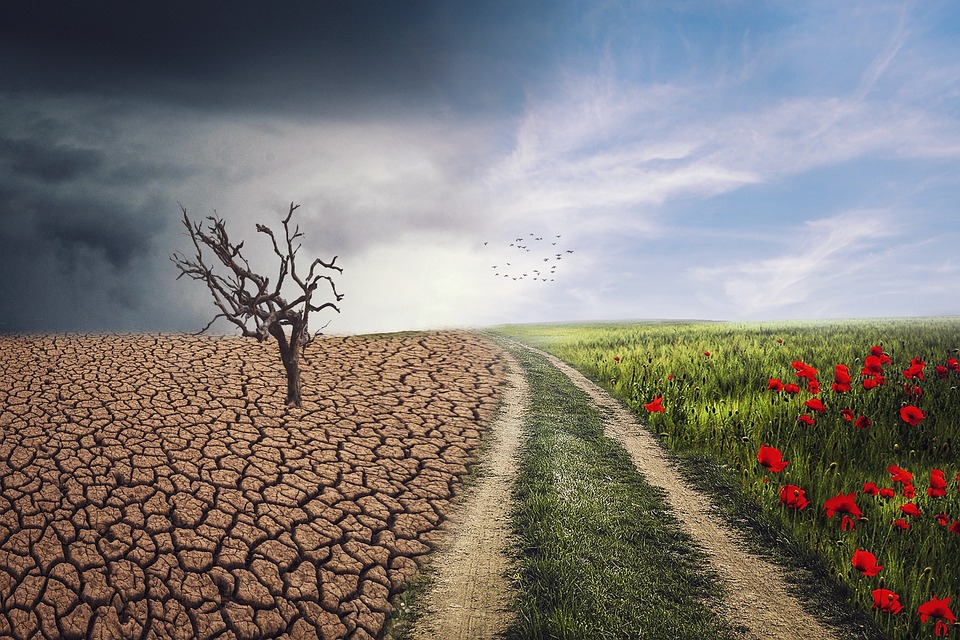Is Colorado a Desert Climate?
Colorado’s climate is often misunderstood due to its diverse geography, which includes mountains, plains, and desert regions. While it is not accurate to label the entire state as a desert, certain areas do exhibit desert-like characteristics.
Geographic Overview of Colorado
Location and Topography:
Colorado is situated in the western United States and is renowned for its varied landscapes, which range from the towering Rocky Mountains to expansive plains and high desert plateaus. The state’s topography significantly influences its climate, leading to a wide array of weather patterns across different regions.
Elevation Influence:
The average elevation of Colorado is about 6,800 feet (2,073 meters) above sea level. This high elevation contributes to its distinct climate zones, resulting in cooler temperatures and varying precipitation levels across the state. The interplay between elevation and geography creates a complex climate system that cannot be easily categorized.
Does Colorado Have a Desert Climate?
High Desert Regions:
Certain parts of Colorado, particularly in the western and southwestern regions such as the Colorado Plateau, Grand Junction, and the San Luis Valley, experience semi-arid conditions. These areas receive low annual precipitation, typically ranging from 8 to 12 inches per year, which classifies them as high desert regions rather than true deserts[1][2].
Climate Characteristics of Colorado’s Desert Areas
Low Precipitation:
The high desert regions of Colorado are characterized by their low rainfall, contributing to a dry and arid climate. This lack of moisture affects local ecosystems and agricultural practices.
Temperature Extremes:
These desert areas experience significant temperature fluctuations. Summers can be quite hot, with daytime temperatures often exceeding 90°F (32°C). Conversely, winters can be harsh with nighttime temperatures dropping considerably due to the high elevation.
Seasonal Variations:
Unlike lower-elevation deserts such as those found in Arizona or Nevada, Colorado’s high desert experiences greater temperature variations between day and night. This variability is a direct result of its elevation and geographical features[1].
Other Climate Zones in Colorado
Mountain Climate:
Much of Colorado is dominated by a mountain climate characterized by cool summers and heavy snowfall during winter months. The Rocky Mountain region sees significant seasonal changes.
Continental and Alpine Climate:
At higher elevations, alpine conditions prevail with colder temperatures, significant snowfall, and shorter growing seasons compared to lower elevations.
Plains Climate:
The eastern part of Colorado along the Great Plains experiences a more continental climate with greater seasonal temperature fluctuations and varying precipitation levels[1].
Impact of Colorado’s Desert Climate on Lifestyle and Environment
Agriculture:
The semi-arid climate in western Colorado supports specific agricultural practices such as fruit orchards (notably peaches and grapes) that thrive under irrigation. Farmers rely heavily on water management strategies to sustain crops in these dry conditions[4].
Water Scarcity:
Water management is crucial in these desert areas due to limited natural water resources. Techniques such as irrigation and water conservation are essential for supporting both agriculture and population growth.
Outdoor Recreation:
The unique landscapes found in Colorado’s desert regions attract outdoor enthusiasts for activities like hiking, biking, and camping. Notable sites include areas like Canyonlands and Mesa Verde National Park[4].
How Colorado’s Desert Climate Differs from True Desert Climates
High Elevation Desert:
Unlike typical lowland deserts such as the Sonoran or Mojave Deserts, Colorado’s desert regions exist at higher elevations. This results in cooler temperatures overall and greater temperature fluctuations throughout the day.
Precipitation Differences:
While still classified as arid or semi-arid, Colorado’s high desert receives slightly more precipitation than some lower-elevation deserts. This distinction makes it more semi-arid than true desert environments[1][3].
FAQs
– Is all of Colorado a desert?
No, only parts of western and southwestern Colorado have semi-arid conditions. The majority of the state features diverse climates ranging from mountainous to plains regions.
– What is the climate like in Colorado’s desert regions?
These areas are semi-arid with hot summers, cold winters, and low precipitation levels.
– How does Colorado’s desert differ from other U.S. deserts?
The high desert areas in Colorado tend to be cooler with greater temperature fluctuations compared to lower-elevation deserts like the Mojave or Sonoran.
– Can you farm in Colorado’s desert areas?
Yes, with effective irrigation practices, agriculture is viable in these semi-arid regions[4].
Conclusion
In summary, while certain parts of Colorado exhibit characteristics of a semi-arid or high desert climate, the state overall encompasses a wide range of climatic zones influenced by its diverse geography and high elevation. This unique combination contributes significantly to both its environmental diversity and recreational opportunities available throughout the state.

Kyle Whyte is a notable scholar and professor at the University of Michigan, holding positions such as the George Willis Pack Professor in the School for Environment and Sustainability and Professor of Philosophy. Specializing in environmental justice, his work critically examines climate policy and Indigenous peoples’ ethics, emphasizing the nexus between cooperative scientific endeavors and Indigenous justice. As an enrolled Citizen Potawatomi Nation member, he brings a vital perspective to his roles as a U.S. Science Envoy and member of the White House Environmental Justice Advisory Council. His influential research is supported by various prestigious organizations including the National Science Foundation, and disseminated through publications in high-impact journals. Kyle actively contributes to global Indigenous research methodologies and education, with affiliations to numerous institutes and societies dedicated to traditional knowledge and sustainability. Recognized for his academic and community engagement, Kyle has earned multiple awards and served in various visiting professorships. His efforts extend to leadership positions on boards and committees focused on environmental justice nationwide.
